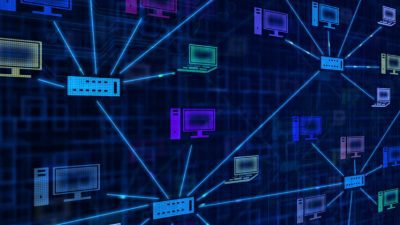Will quantum computing cripple the cryptocurrency?
Horace C. White
Modern Tokyo Times

Quantum computing: the underrated cryptocurrrency threat
Cryptocurrency is a crypto-asset that uses secure cryptography to process financial transactions. Last week, blockchain service enabler Ternio launched its first blockchain product, BlockCard (TM). Blockcard (TM) is one of the three crypto debit cards in the United States. According to a Ternio press release, BlockCard (TM) is a debit card that enables users to spend their cryptocurrency easily. Ternio noted that the card can be used online and at brick-and-mortar stores anywhere in the world for offsetting payments. In a blog post, the company pointed out that it aims to accelerate cryptocurrency adoption by enabling ordinary people use every day.
Pushing cryptocurrency to the mainstream
Ternio is one of the hundreds of cryptocurrency companies working round the clock to propel cryptocurrency to the mainstream. Indeed, this move has gained urgency given that cryptocurrency promises a wide array of benefits. The cryptocurrency proponents say that digital currency is capable of blunting government control. What’s more? They also argue that virtual currency can be transferred seamlessly and effortlessly.
In addition, cryptocurrency transfers are cheap unlike those involving fiat currencies. In the course of promoting cryptocurrency adoption around the world, cryptocurrency companies often emphasize that the major setbacks to cryptocurrency are exit scams, regulation and volatility. Consequently, they channel their efforts toward tackling these challenges holistically. Nevertheless, little or no attention is paid to an existential threat to the cryptographic architecture of cryptocurrency.
The precepts of cryptocurrency
To grasp the threat that cryptocurrency will have to grapple with in the near future, a good understanding of the principle of cryptographic key is important. Basically, today’s classical computers run on transistors, which work on the basic precepts of encoding data in binary digits (0/1 or ON/OFF). These computers also employ secret cryptographic keys to enable cryptocurrency transactions. Within the DLT (distributed ledger technology) architecture, one must not fail to mention digital signatures.
Technically, these digital signatures help users to prove that they own certain amount of cryptocurrency. Besides, the signatures also confirm that a transaction emanated from a particular user and ensure that a transaction remains unchanged once it is broadcast. Indeed, every “cryptocurrency holder” has both a private key and public key to “sign the digital signature.” In short, there wouldn’t be any crypto-asset transactions without the signature. Think of a public key, as a mailbox while the private key is the key to it. Literally, the only person who can access the content of the mailbox is the one with its unique key. So, just as the name connotes, private keys are digital characters that must not be exposed to other members of the network as it helps a user to transfer value in cryptocurrency.
The global cryptocurrency industry is at risk
Scientists are increasingly racing to develop another set of computers called quantum computers. Unlike the classic computers that depend on binary digits, quantum computers use “qubits.” Essentially, a single qubit can encode more than two states. To be clear, classical computers cannot do this. Through a complex algorithm, qubits store super positioned multiple states. In a nutshell, qubits allow for the storage of significant amounts of large data and is energy efficient. Meanwhile, the workings of quantum computers are worrisome as they disrupt everything classical computers represent. In other words, quantum computers can potentially shatter the concept of cryptography, thus threatening users’ crypto-asset investments worth billions of dollars.
Already, research on quantum computers has reached advanced stage with many companies demonstrating its importance and use. With no plans to exercise some restraints, the developers argue that quantum computers perform computing tasks better than classical computers. Sadly, they care less about an entire multibillion-dollar cryptocurrency economy the computers put at risk.

Modern Tokyo News is part of the Modern Tokyo Times group
DONATIONS to SUPPORT MODERN TOKYO TIMES – please pay PayPal and DONATE to sawakoart@gmail.com
http://moderntokyotimes.com Modern Tokyo Times – International News and Japan News
http://sawakoart.com – Sawako Utsumi personal website and Modern Tokyo Times artist
https://moderntokyonews.com Modern Tokyo News – Tokyo News and International News
http://global-security-news.com Global Security News – Geopolitics and Terrorism
PLEASE JOIN ON TWITTER
https://twitter.com/MTT_News Modern Tokyo Times
PLEASE JOIN ON FACEBOOK